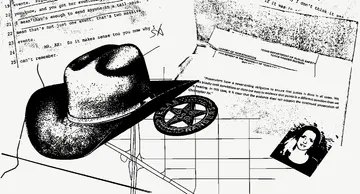The recent and tragic suicide of my friend and fellow exoneree Darryl Hunt is a stark reminder that no monetary compensation can make up for the psychological toll of wrongful conviction. When a wrongfully convicted person is released from prison, it’s often to a throng of reporters clamoring to capture images of an emotional reunion with his smiling family and friends, and lawyers. These images instill a sense of vindication and a happy ending. But what is too often unseen is how difficult it is to re-enter society after years or decades of confinement -- especially if you are innocent. These are the unseen scars, and too many states pay them inadequate attention, or none at all.
In 1984, when he was 19, Darryl, an African-American man, was convicted of a crime he didn’t commit, the rape and murder of a young white woman in Winston-Salem, North Carolina, on the basis of a tentative eyewitness identification and the pressured testimony of a girlfriend who later recanted. It was a racially charged trial. Darryl consistently professed his innocence, even refusing a plea that would have set him free years before his 2004 exoneration. After DNA evidence exonerated him, Darryl had to file a lawsuit to win compensation; he was awarded a settlement of $1.7 million in 2007. North Carolina has since updated its compensation statute to provide job-training and college tuition for exonerated inmates, but compensation is now capped at $750,000, an inadequate amount for someone who paid for another man’s crime with 20 years of his life.
Darryl would later found the Darryl Hunt Project for Freedom and Justice to help the wrongfully convicted and he recently attended a Department of Justice “listening session”, at which he discussed the need for comprehensive medical assistance and Social Security for exonerees. Despite this advocacy, Darryl struggled to put back together the pieces of his own life.
I saw Darryl regularly at the annual Innocence Network Conference, a gathering of innocence organizations from around the country and world. Each time that we met, he would tell me how proud he was of me for becoming an attorney. We talked about our struggles and my frustration that Wisconsin has still not provided me compensation. (Of the 30 states with compensation statutes, Wisconsin’s law is one of the worst, with a high barrier to eligibility and a lifetime cap of $25,000, regardless of the number of years served.) These conversations made me grateful that I had come home at 26, a much younger man than Darryl, and still had a reasonable chance to put my life back together. I had been mentored by a fellow inmate who urged me to study my case and the law while in prison. When my conviction for sexual assault was discredited -- with the help of the Wisconsin Innocence Project -- after eight years of incarceration, I went to community college and then earned a law degree from Loyola University Chicago. My story is extraordinary and is not a validation of the ethos of pulling oneself up by the bootstraps. Yes, I worked very hard to get where I am, but luck and youth had a whole lot more to do with it. Many exonerees, like Darryl, come home in their 40s or older, and most are not as lucky as I was.
Lucky or not, we all find ourselves mentally battered from fighting to get out, to re-enter society and win compensation. Before prison, I was a 17-year-old who enjoyed cookouts and holidays with aunts and uncles. When I came home, many of those aunts and uncles were near death, and new family members had been born who knew me only as a face in a picture or a voice on the other end of a prison phone call.
In the months following my exoneration, I suffered from depression, anger and confusion. How could a system that reversed my conviction leave me with nothing – not even a mental or physical evaluation? I was released with no secondary education, no job training, no credit, no savings, no health insurance and no way to explain to future employers the 10-year-gap in my resume. My struggle was difficult at my age, but I can only imagine how disheartening it must be to win exoneration and come home at the age of retirement with absolutely nothing. Yet 20 stateshave no statute assuring that people wrongfully deprived of their freedom are helped back into society and compensated for the stolen years.
It is only fair and humane that every state provide the exonerated with reentry services such as education, job training, healthcare and other social services, and enact robust compensation statutes. In 2004, Congress and President Bush recommended compensation of $50,000 per year of unjust incarceration, and up to double that for years spent on death row. Adjusted for inflation, that is $63,000. It’s a small price to pay for a profound injustice. The unseen scars can never be fully healed; nonetheless, society has a moral responsibility to treat them.
Jarrett Adams, J.D. was wrongfully convicted of a sexual assault. After his release he earned a law degree and is now clerking in U.S. District Court in the Southern District of New York.
